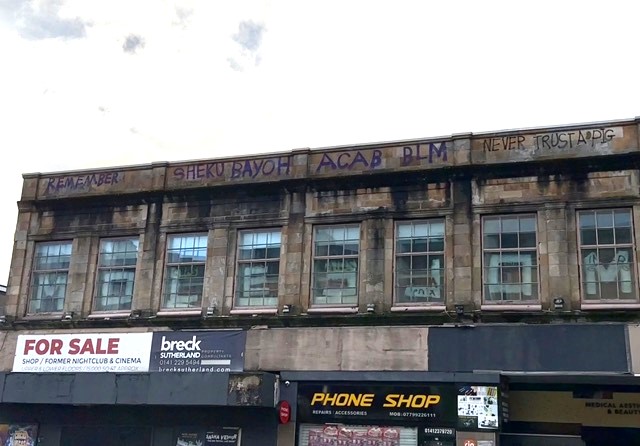For a Society Which Cares – Justice for Sheku
My fight is your fight, and we will cling tight to each other until justice prevails – Kadi Johnson.
Earlier this week the Sheku Bayoh Public Inquiry recommenced, with this phase examining the extent to which race was a factor in the events leading up to and following Sheku’s death – particularly the actions of the police officers involved.
The Public Inquiry started in 2022, seven years after Sheku Tejan Bayoh (31) died in Kirkaldy, mere minutes after encountering seven police officers from the then Fife Constabulary.
Black death is often spectacularised, particularly in circumstances which involve state brutality and violence. Sheku’s life has been examined, the lives of his loved ones turned inside and out, and his death has been relived in public since 2015.
The Inquiry then, is also a violent spectacle. Countless hearings have played and replayed pixelated videos showing Sheku’s last living moments. Police officers able to retell their stories via digital reconstructions – with moveable ghostly outlines of ‘characters’ representing those at the scene -, and sometimes, even those same officers physically demonstrating what they believe took place on that day. Stamping. Shouting. Shrugging.
Some witnesses make eye contact with Sheku’s family and the public, defiantly.
These are the more obvious forms of violence, which many would expect. Violence, however, is embedded into Scottish/Western society and permeates from top to bottom.
Sitting at the Inquiry on Tuesday, we listened to Crown Office and Procurator Fiscal Service (COPFS) witness Ashley Edwards KC, who was the allocated Advocate Depute in the investigation. During her evidence, Ashley Edwards KC spoke of the research she had undertaken to understand Sierra Leone and Sheku’s background.
We listened to a learned member of society use ‘resettled slaves’ to describe how the population of Sierra Leone came to be. We heard her explain that Mr Bayoh’s name had Creole influences, which is why it was thought he was Afro-Caribbean (resettled from South America) and thus more likely to have sickle-cell anaemia.
Presentation of misinformation as truthful knowledge is a form of violence, and I was chilled by Ashley Edwards KC’s flattening and erasure of Africanness and Blackness.

Whilst suppressing and erasing knowledge and experience contradictory to the one it wishes to project, the state and its associated institutions/levers – and the individuals who are part of them-, present alternative narratives. We’ve seen this with the Hillsborough Disaster, Post Office Scandal, Grenfell, Stephen Lawrence and The Battle of Orgreave.
In each, we learned of police brutality, cover-ups, surveillance, abuse, threats, false media reporting – the true violent face of the state.
It was only in 2015, that the Independent Police Complaints Commission (IPCC) reported that during the Battle of Orgreave, there was “evidence of excessive violence by police officers, a false narrative from police exaggerating violence by miners, perjury by officers giving evidence to prosecute the arrested men, and an apparent cover-up of that perjury by senior officers”.
During the Sheku Bayoh Public Inquiry, common themes of failures, hindsight, lack of knowledge and lack of training are surfacing. At times it seems, no-one wants to take responsibility.
But the truth be told, not one individual can take responsibility. Institutional racism is a term which surfaces in such circumstances, and though this can be helpful in looking beyond an individual and their actions. However, when an institution is blamed, training is offered, policies are made, lessons are learned, and jobs, usually in Equality, Diversity and Inclusion (EDI), are created.
A collective sense of relief is felt knowing the curtain can be drawn, the mask replaced and ugly truth of how our society functions is hidden away again, until next time. Maybe it’s time to break that cycle, and for us to (re)create societies of care, belonging and love.
As Sheku’s children get older, his family need to be able to share joyful memories of his life. To do this, they need to be able to grieve. And to grieve, a sense of justice must be felt.
A vigil will be held on Thursday 6th June 2024 from 0845 at Festival Square, Edinburgh – where the Inquiry has been taking place since 2022. People are encouraged to fill the square and show their support for Sheku, his family and for justice.
If you are unable to attend, leave a message of support/comfort for Sheku’s family or attend the Public Inquiry as it enters its final stages. This phase of the Sheku Public Inquiry will sit until July 2024.
More information on the campaign and resources are available here: https://linktr.ee/justiceforsheku
